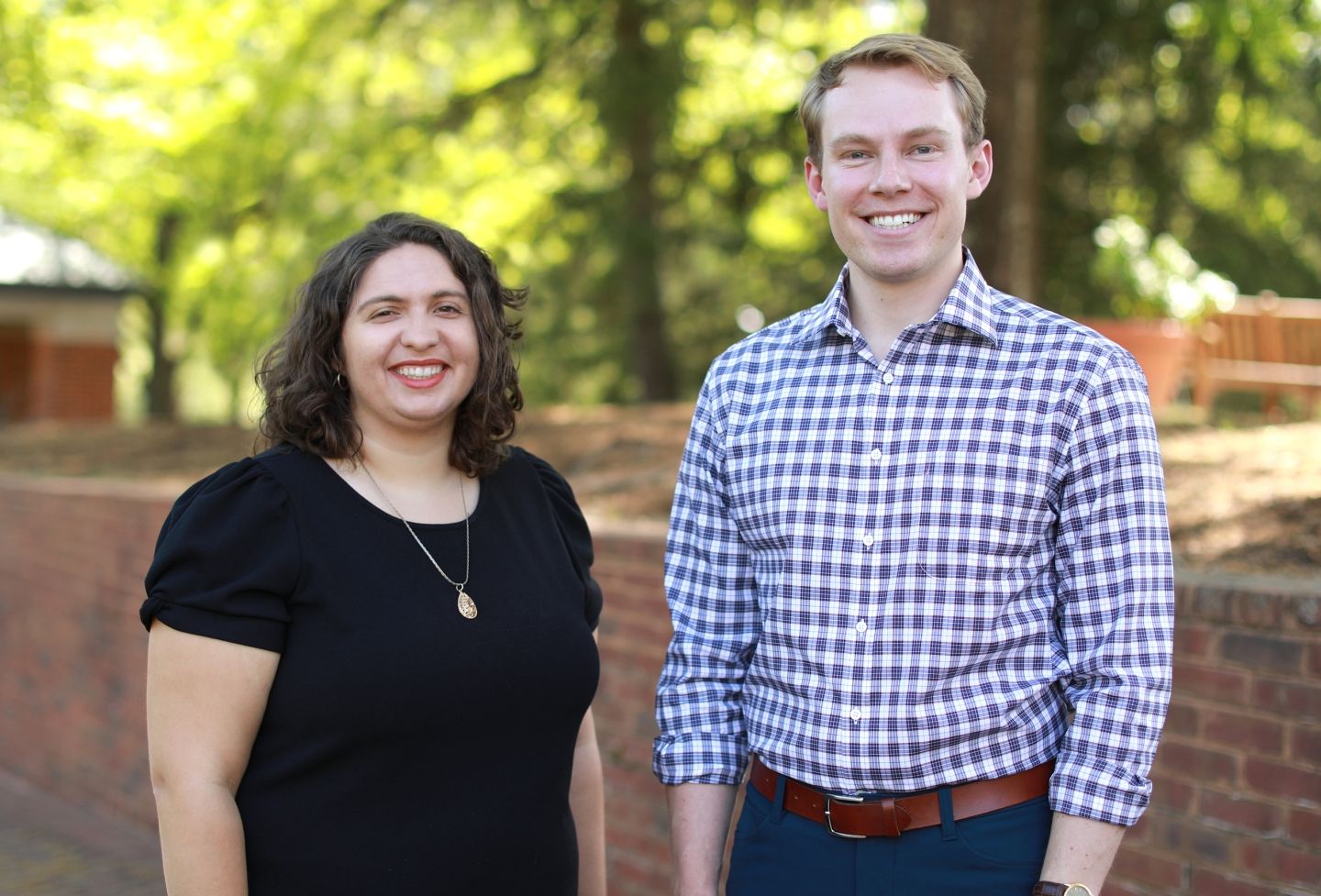Adam Sorensen earned the Faculty Award for Academic Excellence for graduating with the highest GPA in the Class of 2017. He recently shared some of his secrets for academic and early-career success.
The Northwestern University summa cum laude graduate is now clerking for Judge J. Harvie Wilkinson III ’72 on the U.S. Court of Appeals for the Fourth Circuit. Sorensen has also worked as a legal intern at the U.S. Justice Department's Civil Appellate Staff, a summer associate at Sullivan & Cromwell and a research assistant for Dean Risa Goluboff.
At UVA Law, Sorensen received the Jackson Walker LLP Award, served as articles development editor for the Virginia Law Review and participated in the Supreme Court Litigation Clinic.
You earned a B.S. in journalism at Northwestern and were an associate editor at Time magazine. How did you transition to law? And what have you learned in journalism that applies to studying and practicing law?
I think being a journalist was good preparation for law school. It gave me a lot of practice writing. Even though I had to unlearn some habits to adjust to legal prose, I think clarity and brevity are universally valuable. Having some reporting experience also helped me talk to professors — I wasn't shy about approaching super-smart people and pestering them with questions.
What is a typical week like for you as a clerk for a federal judge?
As a law student, I often heard people talk about clerking like it’s the best job on the planet. They weren't wrong! I do a lot of legal research and writing. Depending on the week, that might mean helping the judge prepare for oral argument or helping with the opinions. I frequently bounce ideas off my wonderful co-clerks, Josh, Kelly and Shannon. And I am incredibly fortunate to spend a lot of time with my boss. Judge Wilkinson is a thoughtful jurist, a beautiful writer, and a deeply kind and generous person. I hope I can learn a lot from him.
What would you have done differently as a law student?
I had a really happy experience at UVA, so it’s hard to say what I would change. But I do wish I’d had more time to enjoy everything the law school community has to offer. I think there were only one or two professors I took more than once, and I still feel like a missed a lot of fabulous classes. Just off the top of my head, I wish I’d gotten a chance to take Professors Kenneth Abraham, Charles Barzun, Michael Collins, Ashley Deeks, George Geis, Douglas Laycock, Ruth Mason, Saikrishna Prakash and Richard Schragger. And there are at least as many student groups I would’ve liked to be more involved with. That being said, work-life balance is important to me, and my proudest accomplishment in law school was that I made it home to have dinner with my family almost every night.
What advice do you have for 1Ls hoping for similar academic success?
The best advice I ever got was to ignore what other people are doing. Everyone learns differently. And I think an important part of success in law school is figuring that out and creating your own methods without getting too stressed or distracted by everyone else’s. There’s a strong temptation during 1L to compare yourself to your section-mates or others. It’s not helpful.
I can tell you what worked for me, but it comes with the caveat that I know plenty of brilliant and successful people who had completely different approaches. I preferred handwriting my class notes because it helped me retain the information. I made my own study materials rather than use other people’s outlines or hornbooks because it was the process of distilling my class notes, not the end product itself, that I found useful. And I tried to write short exams because I am a terribly slow typist and I found that communicating good arguments clearly was more important than packing in every attenuated bit of analysis I could think of.
One piece of universal advice is to have fun. Find what interests you and savor it. There’s a lot about law school that’s stressful, and the best way through is to fall in love with the ideas. A corollary to that is not to let law school consume your life. Have something you care about outside the law school bubble. There are lots of studies suggesting that happy people are more productive. And there are more important things in life than grades.
Any words of wisdom for students also seeking a clerkship?
I think everyone knows that academic rigor and getting to know your professors are important. But it’s also important to know that there’s not one set formula or timeline. People find clerkships with all kinds of judges at vastly different times, even after graduation. It sometimes takes a lot of persistence, but if clerking is something you’re interested in, you should go for it. If you decide to apply, tell your professors and ask for their advice. UVA Law faculty members are so generous with their time, and they go to extraordinary lengths to help their students.
Founded in 1819, the University of Virginia School of Law is the second-oldest continuously operating law school in the nation. Consistently ranked among the top law schools, Virginia is a world-renowned training ground for distinguished lawyers and public servants, instilling in them a commitment to leadership, integrity and community service.


